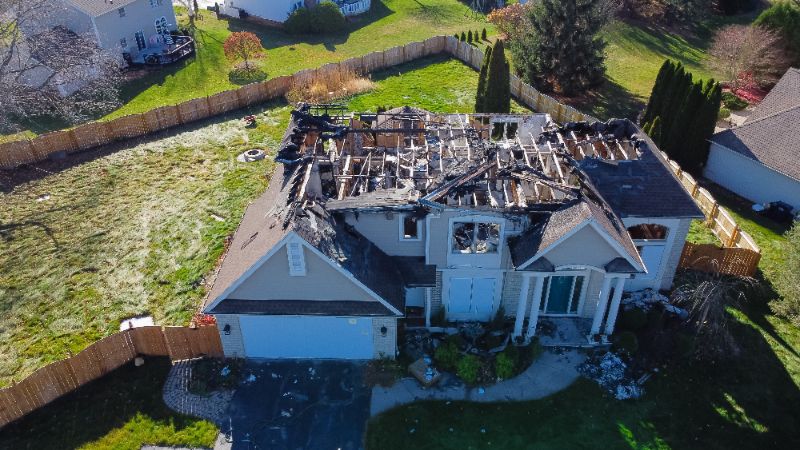The Hidden Financial Impact of Storm Damage on Texas Homeowners
Texas homeowners are burdened with some of the highest property taxes in the nation (7th highest in the U.S.). Now imagine a hurricane or hailstorm badly damages your home. You’re scrambling to pay for repairs and find somewhere safe to live – the last thing you need is another financial hit – but that can happen in the form of a higher property tax bill. Texas saw 20 major disaster events in 2024 alone, causing tens of billions of dollars in damage (NOAA). If you’re recovering from such a disaster (or even an isolated house fire or flood), you might be worried about both rebuilding and handling your following property tax assessment. It’s a lot to deal with, but understanding your options can make a big difference.
In response to soaring tax bills, Texas recently overhauled its property tax laws to give homeowners relief. The changes include a new “circuit breaker” law that caps how much your property’s taxable value can increase each year, plus bigger homestead exemptions and tax breaks for disaster-damaged properties. These reforms are meant to ease the financial strain on Texans. But beyond the “circuit breaker”, what do these new laws mean for someone filing a property damage claim? Could they impact your damage claim strategy? In this post, we’ll break down exactly how Texas’s new property tax laws could affect your approach to property damage claims – and what steps you can take to protect yourself.
If your Texas home was damaged in a storm, flood, fire, or other disaster, don’t try to navigate insurance claims and changing tax laws alone. At JCE Law Group, we help homeowners fight denied or underpaid claims and secure every tax break available under the law. Call us at (504) 754-5884 or visit Contact Us to schedule your free consultation. We’ll walk you through your options, deal with the insurance company for you, and make sure your recovery is as complete and fair as possible. There are no upfront fees, no surprises, just results.

New Texas Property Tax Laws Explained
“Circuit Breaker” 20% Cap: Starting in 2024, Texas enacted Property Tax Code § 23.231 (nicknamed the “circuit breaker”) that caps annual appraisal increases at 20% for real property valued at $5 million or less. In plain terms, your county can’t increase the taxable value of your property by more than 20% in one year. This is meant to stop explosive tax jumps. You don’t need to apply – it’s automatic (for 2024 through 2026 as a trial run). Note: This 20% cap doesn’t cover Homestead residences because they already have a 10% cap from existing law, and any new improvements (like additions) are taxed at full value on top of the cap.
Bigger Homestead Exemption: Lawmakers also boosted the homestead exemption for school taxes from $40,000 to $100,000 (even higher for seniors/disabled). So if you own and live in your home, the first $100k of its value is now exempt from school district taxation – a substantial yearly savings for Texas homeowners.
Disaster Damage Tax Relief: If your property is damaged in a declared disaster, Texas Tax Code § 11.35 can give you a temporary break. You can apply to your appraisal district for a disaster exemption on that year’s taxes if the property is at least 15% damaged. Depending on the severity, you could get from 15% up to 100% of your appraised value knocked off your tax bill. Important: You must apply within 105 days of the Governor’s disaster declaration to get this benefit. The exemption only lasts until the end of that tax year (it’s designed to help during the immediate recovery period).
Why Do These Laws Matter for Damage Claims? At first glance, tax laws and insurance claims seem unrelated – but they do intersect. The way Texas property tax laws impact damage claims mostly comes down to how your property’s value is measured. For instance, if your taxable value is capped low by the circuit breaker or reduced due to a disaster exemption, it might be lower than your home’s actual market value. An insurance company might latch onto that and argue your property wasn’t “worth” as much as you claim. That’s why, when making a claim, you should be ready to show evidence of your property’s actual pre-damage value and the full cost of repairs. These new tax laws ultimately put money back in your pocket through tax savings – just make sure they don’t inadvertently give an insurer an excuse to undervalue your claim. Knowledge and documentation are your best defense.
Timeline: Key Steps to Take After Property Damage
-
Ensure Safety, Document, and Mitigate (Immediate): Ensure everyoneis safety and address urgent hazards (shut off utilities, etc.). Next, document the damage with plenty of photos and videos. Finally, take steps to prevent further harm – for example, tarp a leaking roof or board up broken windows to keep the elements out.
-
Notify Your Insurance Promptly (First Few Days): Contact your homeowners’ insurance company as soon as possible to start the claim. Texas law requires insurers to respond quickly, so filing promptly helps keep things moving. Keep a log of all communications with the insurer.
-
Apply for Tax Relief if Applicable (Next Few Weeks): If a natural disaster caused the damage and your area was declared a disaster zone, apply for the temporary property tax exemption promptly (you have up to 105 days from the disaster declaration). This can significantly cut your tax bill for the year. Even if it wasn’t a declared disaster, inform your county appraiser if your home is severely damaged so they can consider it in your valuation.
-
Assess the Insurance Outcome and Dispute if Needed (Weeks 2-6): Once the insurer investigates, you’ll get a decision. If your claim is approved and the payout looks fair, you can proceed with repairs (get multiple estimates and save receipts). If the claim is denied or underpaid, you can dispute it by providing more evidence or using the insurer’s appeal process. This is also the time to consider hiring a lawyer, especially if you suspect the insurer isn’t treating you fairly.
How to Resolve Your Property Damage Claim (and Get What You’re Owed)
After handling the immediate aftermath, you might still find yourself at odds with the insurance company. If your insurer denies your claim or offers far too little, remember that you have the right to challenge them. Start by reviewing their reasons and asking for clarification. Often, you can strengthen your case by providing more evidence – say, a contractor’s report that shows higher repair costs, or additional photos of damage. Keep communications in writing when possible. Texas insurance laws require companies to act in good faith, and a paper trail helps keep them honest.
If the insurer still won’t budge or is dragging its feet, you may need to consider legal action. In Texas, you can sue an insurance company for failing to honor a valid claim or for handling it in bad faith. Sometimes the mere involvement of an attorney will prompt a fair offer; if not, a lawsuit can seek the full repair costs and even penalties or interest if the insurer violated prompt-payment rules. Likewise, if someone else (not the weather) caused your property damage – for example, a negligent driver or a contractor’s faulty work – you have the option to pursue a claim against that third party to recover your losses. These legal avenues can be complex, but they exist to help make you whole.
Many property damage disputes end in a settlement before reaching court. If you get a settlement offer, evaluate it carefully. Make sure it covers all your damages (including any hidden or future issues). Don’t feel pressured to accept the first offer if it seems low. You can negotiate – and having a lawyer’s guidance here can ensure you don’t inadvertently sign away your rights for too little.
Why JCE Law Group Is the Right Choice for Help
Navigating property tax changes in damage claims while fighting with insurance companies is a challenge. JCE Law Group is here to lighten that load. Here’s why Texans in challenging situations turn to us:
-
Deep Texas Know-How: Our team has extensive experience with Texas property damage cases and stays up to date on new laws like the recent property tax reforms. We understand how local appraisal rules, insurance tactics, and legal strategies overlap, and we use that knowledge to benefit our clients.
-
Client-Focused Approach: Dealing with a damaged home is stressful. We provide compassionate, one-on-one support – explaining your options clearly and handling the tough interactions with insurers and officials so you don’t have to.
-
Proven Results: From negotiating settlements to taking insurers to court, we fight tirelessly for our clients. We’ve helped homeowners get the payouts they deserve, even after initial denials. Big insurance companies know we mean business.
-
Holistic Support: Recovering from property damage isn’t just about one claim – it involves insurance, taxes, and rebuilding. We make sure no stone is unturned: filing the right tax exemption applications, meeting claim deadlines, documenting every loss, and more. By covering all bases, we put you in the best position to recover fully.
Navigating Property Tax Changes in Damage Claims
Juggling an insurance claim alongside new property tax rules requires careful planning. On one hand, you want to maximize your insurance payout; on the other, you want to minimize your tax burden while your property is in flux. The good news is these goals can coexist. Texas property tax laws’ impact on damage claims mostly boils down to timing and documentation. For example, suppose your home’s taxable value is temporarily lowered due to damage. In that case, that doesn’t reduce what you’re entitled to from insurance – but you may need to prove your home’s actual market value and repair costs through independent evidence. Don’t hesitate to get a professional appraisal of your property’s pre-damage value or detailed contractor estimates. This helps counter any argument from an insurer that “your property was only worth $X” based on a tax assessment. Meanwhile, take advantage of all tax relief available: apply for the disaster exemption if eligible, and ensure any appraisal cap (circuit breaker or homestead limitation) is correctly applied so you aren’t overtaxed during your recovery. It’s a balancing act, but with the proper guidance, you can handle both your claim and your taxes without sacrificing one for the other. In our experience at JCE Law Group, clients often overlook the tax side at first. We make it a point to remind them that a lower tax appraisal in the short term is a silver lining – and we’ll help counter any misuse of that number in your claim by presenting solid evidence of your actual losses.
Frequently Asked Questions (FAQs)
-
How do Texas’s new property tax laws impact damage claims?
They mainly affect the situation by altering your property’s tax appraisal. If your home’s taxable value is capped or reduced due to the new laws, you’ll pay less in taxes. But for insurance purposes, what matters is the actual damage and cost to fix it. So your insurance claim isn’t reduced by these tax breaks – you just need to be ready to show evidence of the real value of your loss in case the insurance company questions it.
-
What is the “circuit breaker” property tax cap in Texas?
It’s a new law that limits how much your property’s taxable value can go up each year. From 2024 on, if your property is worth $5 million or less (and isn’t a homestead), the county appraisal district cannot increase your assessed value by more than 20% compared to last year. This “circuit breaker” is automatic and prevents huge jumps in your tax bill. (Homesteads keep their existing 10% annual cap, and any brand-new construction isn’t subject to the cap.)
-
If my home is destroyed in a Texas disaster, can I get a break on property taxes?
Absolutely. Suppose the governor declares a disaster in your area and your property is at least 15% damaged. In that case, you can apply for a Temporary Disaster Exemption on your property taxes under Tax Code § 11.35. Depending on the damage level, this exemption can reduce your appraised value (for tax purposes) by 15%, 30%, 60%, or even 100% for the rest of that year. You need to apply within 105 days of the disaster declaration, and the appraisal district will assess your damage and adjust your tax bill. This relief doesn’t affect your insurance claim – it just lowers your tax burden while you recover.
-
Will a lower tax appraisal hurt my insurance claim?
Not directly. Insurance companies base their payouts on the actual damage and your policy coverage, not on your tax appraisal. So if your county-appraised value drops because your home was wrecked, that saves you on taxes but doesn’t legally limit your claim. However, an insurer might try to use a low appraisal as evidence that your property’s value was lower. You can counter that by providing your evidence – things like an independent appraisal of your home’s actual value or professional estimates of repair costs. As long as you can demonstrate the real financial loss, your insurance should cover those damages (up to your policy limits) regardless of what the tax assessor says.
Why Having a Texas Property Damage Lawyer Changes Everything
Dealing with a property disaster is hard enough without juggling paperwork and insurance adjusters. That’s why having an experienced advocate on your side can be crucial. A knowledgeable Texas property damage lawyer can guide you through every step – from negotiating with the insurance company to making sure you claim all available tax relief. They’ll help you avoid mistakes and fight for the full compensation you need to rebuild. When it comes down to it, having legal support gives you the best chance to get your life back on track.
If your Texas home was damaged in a storm, flood, fire, or other disaster, don’t try to navigate insurance claims and changing tax laws alone. At JCE Law Group, we help homeowners fight denied or underpaid claims and secure every tax break available under the law. Call us at (504) 754-5884 or visit Contact Us to schedule your free consultation. We’ll walk you through your options, deal with the insurance company for you, and make sure your recovery is as complete and fair as possible. There are no upfront fees, no surprises, just results.


